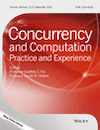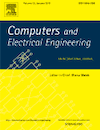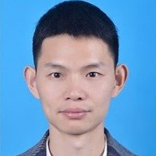Inscrypt 2019
The 15th International Conference on Information Security and Cryptology
Nanjing, China
| December 6-8 2019
About Inscrypt 2019
The 15th International Conference on Information Security and Cryptology will be held in Nanjing, Jiangsu, from December 6 to 8, 2019. It is organized by the State Key Laboratory of Information Security (SKLOIS) of the Institute of Information Engineering of Chinese Academy of Science and the College of Computer Science and Technology, Nanjing University of Aeronautics and Astronautics, co-organized by Collaborative Innovation Center of Novel Software Technology and Industrialization, the College of Computer, Nanjing University of Posts and Telecommunications and Beijing Safe-code Technology Co.Ltd. It is an annual conference targeting the top research results in the related area. Topics of interest encompass research advances in all areas of information security, Cryptology, and their applications. INSCRYPT 2019 seeks high-quality research contributions in the form of well-developed papers, and two successive tracks for crypto and security respectively will be organized. The conference proceedings will be published by Springer Verlag in LNCS series. This conference is in Cooperation with IACR.
Important Dates
| Paper Submission Due | |
| Author Notification | |
| Camera-ready Paper Due | |
| Author Registration Due | |
| Conference Date | December 6-8, 2019 |
Call For Papers in DOCX Call For Papers in PDF
Journal Special Issues
Selected papers (around 10%) presented at the Inscrypt 2019 will be considered (after significant extension with 40% new material) for one of the following SCI-indexed journals based on the topic suitability.
These special issues spread among a few topic oriented conferences. The final acceptance depends on several additional rounds of reviews performed by the journal editor.
 | Sensors Impact Factor: 3.031 Special Issue on Threat Identification and Defence for Internet-of-Things Learn more |
 | Concurrency and Computation: Practice and Experience (CCPE) Impact Factor: 1.167 Special Issue on Recent Advance in Security and Privacy for Smart Society RASPSS19 Learn more |
 | Computers & Electrical Engineering Impact Factor: 2.189 Special Issue on Blockchain Techniques for the Internet of Vehicles Security Learn more |
 | Symmetry Impact Factor: 2.143 Special Issue on Symmetry and Asymmetry Applications for Internet of Things Security and Privacy Learn more |
 | International Journal of Network Management Impact Factor: 1.231 Special Issue on Trust and Privacy in Internet of Things: Challenges and Solutions Learn more |
 | Multimedia Tools and Applications Impact Factor: 2.101 Special Issue on Multimedia Tools and Applications Learn more |
Sponsor
Honorary Chairs
Zhiqiu Huang, Nanjing University of Aeronautics and Astronautics, China
Dongdai Lin, Chinese Academy of Sciences, China
General Chairs
Bing Chen, Nanjing University of Aeronautics and Astronautics, China
Sheng Zhong, Nanjing University, China
Technical Program Chairs
Zhe Liu, Nanjing University of Aeronautics and Astronautics, China
Moti Yung, Google and Columbia University, USA
Organizing Chairs
Liming Fang, Nanjing University of Aeronautics and Astronautics, China
Hao Han, Nanjing University of Aeronautics and Astronautics, China
Publicity Chairs
Debiao He, Wuhan University, China
Peng Xu, Huazhong University of Science and Technology, China
Jiangshan Yu, Monash University, Australia
Yushu Zhang, Nanjing University of Aeronautics and Astronautics, China
Publication Chair
Weizhi Meng, Technical University of Denmark, Denmark
Steering Committee
Feng Bao, Huawei International, Singapore
Kefei Chen, Hangzhou Normal University, China
Dawu Gu, Shanghai Jiao Tong University, China
Xinyi Huang, Fujian Normal University, China
Hui Li, Xidian University, China
Dongdai Lin, Chinese Academy of Sciences, China
Peng Liu, Pennsylvania State University, USA
Wenfeng Qi, National Digital Switching System Engineering and Technological Research Center, China
Willy Susilo, University of Wollongong, Australia
Meiqin Wang, Shandong University, China
Xiaofeng Wang, Indiana University at Bloomington, USA
Xiaoyun Wang, Tsinghua University, China
Jian Weng, Jinan University, China
Moti Yung, Snapchat Inc. and Columbia University, USA
Fangguo Zhang, Sun Yat-Sen University, China
Huanguo Zhang, Wuhan University, China
Program Committee
Mauro Barni, University of Siena, Italy
Feng Bao, Huawei International, Singapore
Kai Chen, Chinese Academy of Sciences, China
Yu Chen, Chinese Academy of Sciences, China
Haibo Chen, Shanghai Jiao Tong University, China
Xiaofeng Chen, Xidian University, China
Kai Chen, Institute of Information Engineering, Chinese Academy of Sciences, China
Ting Chen, University of Electronic Science and Technology of China, China
Chang Choi, Chosun University, South Korea
Jérémie Decouchant, Grenoble University, France
Chunpeng Ge, Nanjing University of Aeronautics and Astronautics, China
Johann Großschädl, University of Luxembourg, Luxembourg
Dawu Gu, Shanghai Jiao Tong University, China
Jian Guo, Nanyang Technological University, Singapore
Feng Hao, University of Warwick, UK
Daojing He, East China Normal University, China
Xinyi Huang, Fujian Normal University, China
Shouling Ji, Zhejiang University
Yu Jiang, Tsinghua University, China
Howon Kim, Pusan National University, Korea
Qi Li, Tsinghua University, China
Kaitai Liang, University of Surrey UK, UK
Jingqiang Lin, Institute of Information Engineering, Chinese Academy of Sciences, China
Zhen Lin, Southeast University, China
Joseph Liu, Monash University, Australia
Ting Liu, Xi’an Jiaotong University, China
Peng Liu, Pennsylvania State University, USA
Yang Liu, Nanyang Technological University, Singapore
Lingjuan Lyu, The Australian National University, Australia
Weizhi Meng, Technical University of Denmark, Denmark
Lei Pan, Deakin University, Australia
Hwajeong Seo, Hansung University, Korea
Chao Shen, Xi’an Jiaotong University, China
Chunhua Su, The University of Aizu, Japan
Willy Susilo, University of Wollongong, Australia
Qiang Tang, Luxembourg Institute of Science and Technology, Luxembourg
Qiang Tang, New Jersey Institute of Technology, USA
Ding Wang, Peking University, China
Hao Wang, Shandong Normal University, China
Long Wang, IBM Waston, USA
Wenling Wu, Chinese Academy of Science, China
Xiaofeng Wang, Indiana University at Bloomington, USA
Yubin Xia, Shanghai Jiao Tong University, China
Liang Xiao, Xiamen University, China
Fengyuan Xu, Zhejian University, China
Shouhuai Xu, University of Texas at San Antonio, USA
Wenyuan Xu, Zhejiang University, China
Min Yang, Fudan University, China
Moti Yung, Snapchat Inc. and Columbia University, USA
Xun Yi, RMIT University, Australia
Yu Yu, Shanghai Jiao Tong University, China
Haojin Zhu, Shanghai Jiao Tong University, China
Chao Zhang, Tsinghua University, China
Yushu Zhang, Nanjing University of Aeronautics and Astronautics, China
Zibin Zheng, Sun Yat-Sen University, China
Yaxin Zhou, Zhe Jiang University, China
Cliff Zou, University of Central Florida, USA
Authors are invited to submit full papers presenting new research results related to cryptology, information security and their applications for either crypto track or security track. All submissions must describe original research that is not published or currently under review by another conference or journal. Areas of interest include, but are not limited to:
| Crypto Track | Security Track |
|---|---|
|
|
Instruction for Authors
Conference language is English. All submissions must be anonymous, with no author names, affiliations, acknowledgments, or obvious references. It should begin with a title, a short abstract, and a list of key words, and its introduction should summarize the contributions of the paper at a level appropriate for a non-specialist reader. The paper should be intelligible and self-contained within 20 pages including references and appendices and must be submitted electronically to easychair.
http://www.easychair.org/conferences/?conf=inscrypt2019
Submissions not meeting these guidelines risk rejection without consideration of their merits. It is highly advised to prepare the submissions in the Springer LNCS format. This conference is in Cooperation with IACR.
Keynote

Title: When seeing is not believing – defeating spoofing attacks in face authentication in mobile platforms
Abstract
For its simplicity and memory-less authentication process, face authentication provides an attractive alternative over legacy passwords and has been widely available in various real-world applications, such as unlocking systems on laptops, desktops and mobile devices. However, face authentication is typically vulnerable to media-based face forgery (MFF), where adversaries display photos/videos or 3D virtual face models of victims to spoof face authentication systems. The threat of MFF-based attacks becomes clear and present as numerous personal images and videos are made available online every day. In this talk, we provide an overview on the latest development of liveness detection for face authentication, with a focus on mobile platforms. We also present our designs called FaceLive and FaceCloseUp to defeat MFF attacks and compare their performance with the state-of-the-art proposals in the literature.
Biography
Robert H. Deng is currently the AXA Chair Professor of cybersecurity, the Director of the Secure Mobile Centre, and the Deputy Dean for faculty and research with the School of Information Systems, Singapore Management University (SMU). He is also a fellow of Academy of Engineering Singapore. His research interests are in the areas of data security and privacy, cloud security, and Internet of Things security. He received the Outstanding University Researcher Award from the National University of Singapore, the Lee Kuan Yew Fellowship for Research Excellence from SMU, and the Asia–Pacific Information Security Leadership Achievements Community Service Star from the International Information Systems Security Certification Consortium. He served as the Steering Committee Chair for the ACM Asia Conference on Computer and Communications Security. He served on many editorial boards and conference committees, including the editorial boards of the IEEE Security & Privacy Magazine, the IEEE Transactions on Dependable and Secure Computing, the IEEE Transactions on Information Forensics and Security, the International Journal of Information Security, and the Journal of Computer Science and Technology.

Title: Post-Quantum Cryptographic Engineering
Abstract
The progress in quantum computer development indicates that the RSA, Diffie-Hellman and elliptic curve Diffie-Hellman cryptosystems might be broken within 20 years. We are in a race against time to deploy post-quantum cryptography before quantum computers arrive. In November 2018, we organized a special issue of the IEEE Transactions on Computers to cover the state-of-the-art research in cryptographic engineering aspects of post-quantum cryptography. There are five competing families of PQC algorithms: code-based encryption, lattice-based encryption and signatures, multivariate quadratic equation signatures, hash-based signatures, and super singular elliptic curve isogeny cryptography. The case for isogeny-based cryptography as a quantum resistant alternative for public-key cryptography is compelling, as it features the smallest public and private keys among known quantum-resistant algorithms. In this talk, I will give a review of efficient algorithms, architectures and implementations of isogeny-based cryptography.
Biography
Çetin Kaya Koç received the PhD degree in computer science from the University of California Santa Barbara. His research interests are in cyber-physical security, cryptographic engineering, finite field arithmetic, random number generators, and neuromorphic engineering. He is the co-founder of the Cryptographic Hardware and Embedded Systems Conference, and the founding editor-in-chief of the Journal of Cryptographic Engineering. He has also been in the editorial board of IEEE Transactions on Computers. Koç is the author and co-author of the about 200 articles 3 books in computer science and cryptography. He was elected as an IEEE fellow for his contributions to cryptographic engineering in 2007. Currently, Koç has appointments at İstinye University (Turkey), Nanjing University of Aeronautics and Astronautics (China), and University of California Santa Barbara (USA).

Title: Why is it so hard to make secure chips?
Abstract
As our understanding of security threats and mitigations keeps growing one would expect chips to become more robust and have better resistance against attacks. Reality is different: the number of security issues is still going up, and vendors have huge challenges to keep products secure in the field. In this presentation we explore the various attack vectors and how they affect the chip design process. We conclude by sharing some concrete advice on how to reduce security risk.
Biography
Marc Witteman has been working on security related topics for 3 decades. He researched the security of digital technology, and published several new threats and vulnerabilities. In 2001 he founded Riscure, now a world renowned security lab with offices in the US, Europe, and China. Within Riscure he contributed to the development of security evaluation services, hardware and software security testing tools, and creating security awareness as a trainer. As a technical entrepreneur he combines the CEO and CTO roles to help customers driving security forward.

Title: Practical Secure Multi-Party Computation with Applications to Privacy-Preserving Machine Learning
Abstract
Secure multi-party computation refers to the ability of multiple participants to jointly evaluate a function of their choice on their respective private data without disclosing any unintended information about it. This field of research has experienced notable advances in recent years, in terms of both the speed these techniques provide and the availability of tools and compilers that aid programmers in synthesizing secure distributed implementations for their desired functionality. Most recently, there has been a lot of interest in scalable privacy-preserving machine learning, where we desire to train a machine learning model on private data distributed across multiple sites or evaluate a private model on a private input without disclosing private data. As part of this talk, we will touch on the recent progress in secure computation and then look at operations of interest for privacy-preserving machine learning. We will discuss optimizations to the state of the art in the secret sharing setting on the example of reading an element at a private location.
Biography
Marina Blanton is associate professor Computer Science and Engineering Department University at Buffalo, The State University of New York. She received her MS in EECS from Ohio University in 2002, MS in CS from Purdue University in 2004, and PhD in CS from Purdue University in 2007. Professor Blanton's research interests are centrally in information security, privacy, and applied cryptography. Recent projects span across areas such as secure computation and outsourcing, integrity of outsourced computation and storage, private biometric and genomic computation, and privacy-preserving systems for medical and social networks. Professor Blanton has served on technical program committees of top conferences and journal editorial boards. She received multiple scholarships and awards including the 2013 AFOSR Young Investigator Award. Her research is supported by the NSF, AFOSR, and AFRL.

Title: Unique Signatures with Tight Reductions
Abstract
Digital signatures have been one of the most prominent cryptographic primitives.
In this talk, I will describe the essential issues on digital signatures, namely how
the security proofs and reductions work.
In particular, I will go through one of the most fundamental issues in digital signatures,
namely the construction of unique digital signatures.
The impossibility of constructing unique digital signatures with tight reductions has been
studied in the past 20 years. In this talk, I will demonstrate how to pass this impossibility
and show how to build a practical scheme. Finally, I will conclude with some future research
direction.
Biography
Willy Susilo is a Senior Professor in the School of Computing and Information Technology, Faculty of Engineering and Information Sciences in University of Wollongong, Australia. He is the director of Institute of Cybersecurity and Cryptology, School of Computing and Information Technology, University of Wollongong. Willy is an innovative educator and researcher. Currently, he is the Head of School of Computing and Information Technology at UOW (2015 - now). Prior to this role, he was awarded the prestigious Australian Research Council Future Fellowship in 2009. He was the former Head of School of Computer Science and Software Engineering (2009 - 2010) and the Deputy Director of ICT Research Institute at UOW (2006 - 2008). Willy obtained his PhD from the University of Wollongong in 2001. He has published more than 500 papers in journals and conference proceedings in cryptography and network security. In 2016, he was awarded the "Researcher of the Year" at UOW, due to his research excellence and contributions. His work on the creation of short signature schemes has been well cited and it is part of the IETF draft. He has served as the program committee member of several international conferences. He is currently an Associate Editor of IEEE Transactions on Dependable and Secure Computing. Previously, he has served as an Associate Editor of IEEE Transactions on Information Forensics and Security. He is the Editor in Chief of the Information journal.

Title: Ring Confidential Transaction Protocol for Blockchain
Abstract
Ring Confidential Transaction (RingCT) is a privacy-preserving protocol that allows user to hide the transaction information in blockchain, including the address of the sender, the receiver and the transaction amount. In this talk, we first discuss the basic concept and the underlying primitive of RingCT (called linkable ring signature). We then present several of our improved versions with much better efficiency and the support for post-quantum security. Finally we discuss the impact of our improvement in the blockchain community.
Biography
Joseph Liu is an Associate Professor in the Faculty of Information Technology, Monash University. He got his PhD from the Chinese University of Hong Kong at 2004. Prior to joining Monash at 2015, he has worked as a research scientist at Institute for Infocomm Research (I2R) in Singapore for more than 7 years. His research areas include cyber security, blockchain, IoT security, applied cryptography and privacy enhanced technology. He has received more than 6600 citations and his H-index is 46, with more than 180 publications in top venues such as CRYPTO, ACM CCS. He is currently the lead of the Monash Cyber Security Group. He has established the Monash Blockchain Technology Centre at 2019 and serves as the founding director. His remarkable research in linkable ring signature forms the theory basis of Monero (XMR), one of the largest cryptocurrencies in the world with current market capitalization more than US$1 billion. He has been given the Dean's Award for Excellence in Research Impact in 2018, and the prestigious ICT Researcher of the Year 2018 Award by the Australian Computer Society (ACS), the largest professional body in Australia representing the ICT sector, for his contribution to the blockchain and cyber security community.

Title: The Blockchain Technology: Applications, Challenges and Opportunities
Abstract
The blockchain technology, despite being still in its infancy, promises to revolutionize the way we think of financial, information, and other infrastructures. Blockchain platforms, thanks to their properties, are promising for novel applications like cryptocurrencies, smart contracts, audit and tracking systems, or novel financial instruments. In this talk, we will introduce the main concepts of the blockchain technology, present the current and potential applications, and discuss selected research opportunities and challenges faced by this technology.
Biography
Pawel Szalachowski is an Assistant Professor at Singapore University of Technology and Design (SUTD). Prior to joining SUTD, he was a senior researcher at ETH Zürich, where he led the design and implementation of the SCION architecture. He received his PhD degree in Computer Science from Warsaw University of Technology in 2012. He is interested in building and analyzing secure networked systems. He has published more than 50 papers in journals and conference proceedings in cryptography and network security including CCS and USENIX Security.

Title: Blockchain security & privacy research progress of VNT Chain
Abstract
Blockchain are taking the world by storm. In this talk, we will introduce the key research progress and directions of VNT Chain with respect to blockchain security and privacy. We will also share our understanding and insights of blockchain, as well as discuss the possibility of applying AI (Artificial Intelligence) to blockchain.
Biography
Zhenguang Liu is the chief scientist of VNT Chain. He had been worked as a research fellow in National University of Singapore (NUS) and Singapopre Agency for Science, Technology and Research (A* STAR) for three years. He respectively received his Ph.D. and B.E. degrees from Zhejiang University and Shandong University, China, in 2010 and 2015. His research interests include blockchain, multimedia data analysis, and data mining. Various parts of his work have been published in first-tier venues including AAAI, ACM MM, NIPS, CVPR, INFOCOM, TIP, TMM, TOMM, etc. Dr. Liu has served as the program committee member for conferences such as ACM MM and MMM, Session Chair of ICGIP 2019, and a reviewer for IEEE Transactions on visualization and computer graphics (TVCG), Journal of Parallel and Distributed Computing (JPDC), ACM MM, IEEE Transactions on Multimedia, Multimedia Tools and Applications, Sensors, etc.

Title: Cyber Range Training Solutions
Abstract
Technical method mapping Real-World Cyberattacks to the virtual environment, simulated attacks ranging from ransomware and defacement to evasive worms and multi-stage attacks.Rely on Multiple Roles and Scenarios Train individuals and teams, from tier-one analysts and students to tier-3 experts, red teams and security professionals. CyberRange training scenarios are fully aligned with personal competencies development path.
Biography
Miao Lei is currently working at Beijing Safe-Code Tech Company, titled as Solution Director, Focus on the providing Solutions of Cyber Range to Government, University, Police Dept. .etc. Who has received MS degree of information security from Beijing University of Posts and Telecommunications at 2008.More than 10 years working experiences at Top 500 corporates, Own Cyber Security, Digital Content Management, Watermarking technology related commercial product Practical experiences.
Accepted Full Papers
- Improving ECDLP Computation in Characteristic 2
Fangguo Zhang (Sun Yat-sen University, China), Zhijie Liu (Sun Yat-sen University, China), Ping Wang (Shenahen University, China), Haibo Tian (Sun Yat-sen University, China) - RoLMA: A Practical Adversarial Attack against Deep Learning-based LPR Systems
Mingming Zha (SKLOIS, Institute of Information Engineering, Chinese Academy of Sciences, China), Guozhu Meng (SKLOIS, Institute of Information Engineering, Chinese Academy of Sciences, China), Chaoyang Lin (SKLOIS, Institute of Information Engineering, Chinese Academy of Sciences, China), Zhe Zhou (Fudan University, China), Kai Chen (SKLOIS, Institute of Information Engineering, Chinese Academy of Sciences, China) - SymSeman: Symbolic Execution with Time Stamps for Deobufscation
Huayi Li (Shanghai Jiao Tong University, China), Yuanyuan Zhang (Shanghai Jiao Tong University, China), Jianqiang Wang (Shanghai Jiao Tong University, China), Dawu Gu (Shanghai Jiao Tong University, China) - Evaluating the Cache Side Channel Attacks against ECDSA
Ziqiang Ma (Institute of Information Engineering, Chinese Academy of Sciences, China), Jingqiang Lin (Institute of Information Engineering, Chinese Academy of Sciences, China), Quanwei Cai (Institute of Information Engineering, Chinese Academy of Sciences, China), Jiwu Jing University of Chinese Academy of Sciences, China Dingfeng Ye (Institute of Information Engineering, Chinese Academy of Sciences, China) - Improved integral attack on Generalized Feistel cipher
Zhichao Xu (Information Engineering University, Zhengzhou, China), Hong Xu (Information Engineering University, Zhengzhou, China and Shanghai Jiao Tong University, Shanghai, China), Xuejia Lai (Shanghai Jiao Tong University, China) - Strong Authenticity with Leakage under Weak and Falsifiable Physical Assumptions
Francesco Berti (ICTEAM/ELEN/Crypto Group, Universite catholique de Louvain, Louvain-la-Neuve, Belgium), Chun Guo (ICTEAM/ELEN/Crypto Group, Universite catholique de Louvain, Louvain-la-Neuve, Belgium), Olivier Pereira (ICTEAM/ELEN/Crypto Group, Universite catholique de Louvain, Louvain-la-Neuve, Belgium), Thomas Peters (ICTEAM/ELEN/Crypto Group, Universite catholique de Louvain, Louvain-la-Neuve, Belgium), François-Xavier Standaert (ICTEAM/ELEN/Crypto Group, Universite catholique de Louvain, Louvain-la-Neuve, Belgium) - Attribute-based Keyword Search from Lattices
Jie Li (State Key Laboratory of Cryptology; Institute of Information Engineering,University of Chinese Academy of Sciences, China), Mimi Ma (State Key Laboratory of Cryptology; College of Information Science and Engineering, Henan University of Technology, China), Jiang Zhang (State Key Laboratory of Cryptology, China), Shuqin Fan (State Key Laboratory of Cryptology, China), Shuaigang Li (State Key Laboratory of Cryptology; Institute of Information Engineering,University of Chinese Academy of Sciences, China) - A Privacy Enhancing Scheme for Mobile Devices Based Secure Multi-Party Computation System
Xueyi Yang (Institute of Information Engineering, Chinese Academy of Sciences, China), Na Lv (Institute of Information Engineering, Chinese Academy of Sciences, China), Tianyu Chen (Institute of Information Engineering, Chinese Academy of Sciences, China), Cunqing Ma (Institute of Information Engineering, Chinese Academy of Sciences, China), Limin Liu (Institute of Information Engineering, Chinese Academy of Sciences, China) - Efficient Identity-based Outsider Anonymous Public-Key Trace and Revoke with Constant Ciphertext-Size and Fast Decryption
Mriganka Mandal (Indian Institute of Technology Kharagpur, India), Ratna Dutta (Indian Institute of Technology Kharagpur, India) - CAVAEva: An Engineering Platform for Evaluating Commercial Anti-Virus Applications on Smartphones
Hao Jiang (CyberTech, HongKong, China), Weizhi Meng (Department of Applied Mathematics and Computer Science, Technical Universtiy of Denmark, Denmark), Chunhua Su (Osaka University, Japan), Kim-Kwang Raymond Choo (The University of Texas at San Antonio, USA) - A SeqGAN-Based Method for Mimicking Attack
Weiqing Huang (Institute of Information Engineering, Chinese Academy of Sciences, China), Xiao Peng (Institute of Information Engineering, Chinese Academy of Sciences, China), Zhixin Shi (Institute of Information Engineering, Chinese Academy of Sciences, China) - Generic Constructions of Revocable Identity-Based Encryption
Xuecheng Ma (University of Chinese Academy of Sciences, China), Dongdai Lin (University of Chinese Academy of Sciences, China) - Side-Channel Leakage of Alarm Signal for a Bulk-Current-Based Laser Sensor
Yang Li (The University of Electro-Communications, Japan), Ryota Hatano (The University of Electro-Communications, Japan), Sho Tada (Kobe University, Japan), Kohei Matsuda (Kobe University, Japan), Noriyuki Miura (Kobe University, Japan), Takeshi Sugawara (The University of Electro-Communications, Japan), Kazuo Sakiyama (The University of Electro-Communications, Japan) - Enhanced Differential Cache Attacks on SM4 with Algebraic Analysis and Error-Tolerance
Xiaoxuan Lou (Zhejiang University, China), Fan Zhang (Zhejiang University, China), Guorui Xu (Zhejiang University, China), Ziyuan Liang (Zhejiang University, China), Xinjie Zhao (The Institute of North Electronic Equipment, China), Shize Guo (The Institute of North Electronic Equipment, China), Kui Ren (Zhejiang University, China) - Certificateless Identity-Concealed Authenticated Encryption under Multi-KGC
Chuang Li (University of Science and Technology of China, China), Chunxiang Xu (University of Science and Technology of China, China), Yunlei Zhao (Fudan University, China), Kefei Chen (Hangzhou Normal University, China), Xiaojun Zhang (UESTC, China) - A Pairing-less Identity-Based Blind Signature with Message Recovery scheme for Cloud-Assisted Services
Mahender Kumar (JNU, India), Satish Chand (JNU, India) - Symmetric Frame Cracking: a Powerful Dynamic Textual CAPTCHA Cracking Policy
Yueyao Chen (Zhejiang University, China), Qianjun Liu (Zhejiang University, China), Tianyu Du (Zhejiang University, China), Yuan Chen (Zhejiang University, China), Shouling Ji (Zhejiang University, China) - Suzzer: A Vulnerability-guided Fuzzer Based on Deep Learning
Yuyue Zhao (University of Science and Technology of China, China), Yangyang Li (National Engineering Laboratory for Public Security Risk Perception and Control by Big Data (PSRPC) ; CAEIT, China), Xinhai Zhang (National Engineering Laboratory for Public Security Risk Perception and Control by Big Data (PSRPC) ; CAEIT, China), Tengfei Yang (National Engineering Laboratory for Public Security Risk Perception and Control by Big Data (PSRPC) ; CAEIT, China), Haiyong Xie (University of Science and Technology of China; PSRPC; CAEIT, China) - Round-Efficient Anonymous Password- Authenticated Key Exchange Protocol in the Standard Model
Qihui Zhang (PLA Strategic Support Force Information Engineering University, China), Wenfen Liu (Guangxi Key Laboratory of Cryptography and Information Security, Guilin University of Electronic Technology, China), Kang Yang (State Key Laboratory of Cryptology, Beijing 100878, China), Xuexian Hu (PLA Strategic Support Force Information Engineering University, China) - Efficient Password-Authenticated Key Exchange From RLWE Based on Asymmetric Key Consensus
Yingshan Yang (SKLOIS, Institute of Information Engineering, CAS, School of Cyber Security, University of Chinese Academy of Sciences, China), Xiaozhuo Gu (SKLOIS, Institute of Information Engineering, CAS, School of Cyber Security, University of Chinese Academy of Sciences, China), Bin Wang (SKLOIS, Institute of Information Engineering, CAS, School of Cyber Security, University of Chinese Academy of Sciences, China), Taizhong Xu (CNCERT/CC, China) - Invisible Poisoning: Highly Stealthy Targeted Poisoning Attack
Jinyin Chen (Zhejiang University of Technology, China), Haibin Zheng (Zhejiang University of Technology, China), Mengmeng Su (Zhejiang University of Technology, China), Tianyu Du (Zhejiang University, China), Changting Lin (Zhejiang Gongshang Univeristy, China, ) Shouling Ji (Zhejiang University, China) - Improving Division Property Based Cube Attacks by Removing Invalid Monomials
Senshan Pan (School of Computer Science and Communication Engineering, Jiangsu University, China), Zhuhua Li (School of Computer Science and Communication Engineering, Jiangsu University, China), Liangmin Wang (School of Computer Science and Communication Engineering, Jiangsu University, China) - A Lattice-based Certificateless Public Key Encryption with Equality Test in Standard Model
Dung Hoang Duong (University of Wollongong, Australia), Willy Susilo (University of Wollongong, Australia), Minh Kim Bui (Vietnam National University Ho Chi Minh City, Vietnam), hanh Xuan Khuc (Institute of Cryptography Science and Technology, Government Information Security Committee, Hanoi, Vietnam)
Accepted Short Papers
- Improving Matsui's Search Algorithm for the Best Differential/Linear Trails and its Applications for DES, DESL and GIFT
Fulei Ji (State Key Laboratory of Information Security, Institute of Information Engineering, Chinese Academy of Sciences, China), Wentao Zhang (State Key Laboratory of Information Security, Institute of Information Engineering, Chinese Academy of Sciences, China), Tianyou Ding (State Key Laboratory of Information Security, Institute of Information Engineering, Chinese Academy of Sciences, China) - Linear complexity of new $q$-ary generalized cyclotomic sequences of period $2p^n$
Vladimir Edemskiy (Novgorod State University, Russia), Nikita Sokolovskii (Novgorod State University, Russia) - Group Signatures with Decentralized Tracing
Tingting Lu (East China Normal University, China), Jiangtao Li (Nanyang Technological University, Singapore), Lei Zhang (East China Normal University, China), Kwok-Yan Lam (Nanyang Technological University, Singapore) - MQ Aggregate Signature Schemes with Exact Security Based on UOV Signature
Jiahui Chen (Guangdong Univeristy of Technology, China), Jie Ling (Guangdong Univeristy of Technology, China), Jianting Ning (National University of Singapore, Singapore), Zhiniang Peng (Qihoo 360, China) - PPIDS: A Pyramid-like Printer Intrusion Detection System Based on ATT&CK Framework
Houhua He (Institute of Information Engineering, Chinese Academy of Sciences, Beijing, China), Lei Yu University of Chinese Academy of Sciences, China Xiaorui Gong (Institute of Information Engineering, Chinese Academy of Sciences, Beijing, China), Haoyu Wang (Institute of Information Engineering, Chinese Academy of Sciences; School of Cyber Security, UCAS, China), Chen Liu (Institute of Information Engineering, Chinese Academy of Sciences; School of Cyber Security, UCAS, China), Shuo Li (Institute of Information Engineering, Chinese Academy of Sciences; School of Cyber Security, UCAS, China) - Elaphurus: Ensemble Defense against Fraudulent Certificates in TLS
Bingyu Li (Institute of Information Engineering, Chinese Academy of Sciences, China), Wei Wang (Institute of Information Engineering, Chinese Academy of Sciences, China), Lingjia Meng (Institute of Information Engineering, Chinese Academy of Sciences, China), Jingqiang Lin (State Key Laboratory of Information Security, Institute of Information Engineering, Chinese Academy of Science, China), Xuezhong Liu (Shenhuahelishi Information Technology Limited Company, China), Congli Wang (Institute of Information Engineering, Chinese Academy of Sciences, China) - Untraceablity of Partial Blind and Blind Signature Schemes
Swati Rawal (MNNIT Allahabad, India), Sahadeo Padhye (MNNIT Allahabad, India) - Privacy-preserving and yet Robust Collaborative Filtering Recommender as a Service
Qiang Tang (Luxembourg Institute of Science and Technology, Luxembourg) - Group Key Exchange from CSIDH and Its Application to Trusted Setup in Supersingular Isogeny Cryptosystems
Tomoki Moriya (The University of Tokyo, Japan), Katsuyuki Takashima (Mitsubishi Electric, Japan), Tsuyoshi Takagi (The University of Tokyo, Japan)
Accepted Poster
- Black Box Explanation Guided Decision-based Adversarial Attacks
Huiyun Jing (China Academy of Information and Communications Technology, China), Chengrui Meng (China Academy of Telecommunications Technology, China), Xin He (National Computer Network Emergency Response Technical Team/Coordination Center of China, China), Wei Wei (China Academy of Information and Communications Technology, China) - Decentralized Internet Number Resource Management Based on Endorsement
Shuai Liu (Institute of Network Technology, Beijing University of Posts and Telecommunications, China), Fei Yang (Huawei Technologies Co. Ltd., China), Dandan Li (Institute of Network Technology, Beijing University of Posts and Telecommunications, China), Marcelo Bagnulo (Universidad Carlos III de Madrid, Spain), Bingyang Liu (Huawei Technologies Co. Ltd., China), Xiong Li (School of Computer Science and Engineering, Hunan University of Science and Technology, China), Xiaohong Huang (Institute of Network Technology, Beijing University of Posts and Telecommunications, China) - SiPfFuzer: A Sparse-instrumentation-based Platform-friendly Fuzzer
Liyan Liu (Institute of Information Engineering, Chinese Academy of Sciences, Beijing, China), Feng Li (Institute of Information Engineering, Chinese Academy of Sciences, Beijing, China), Yanyan Zou (Institute of Information Engineering, Chinese Academy of Sciences, Beijing, China), Aihua Piao (Institute of Information Engineering, Chinese Academy of Sciences, Beijing, China), Feng Liu (Institute of Information Engineering, Chinese Academy of Sciences, Beijing, China), Wei Huo (Institute of Information Engineering, Chinese Academy of Sciences, Beijing, China) - Efficient Construction of Nominative Signature Secure under Symmetric Key Primitives and Standard Assumptions on Lattice
Meenakshi Kansal (Indian Institute of Technology Kharagpur, India), Ratna Dutta (Indian Institute of Technology Kharagpur, India), Sourav Mukhopadhyay (Indian Institute of Technology Kharagpur, India) - Compression-function-based Hash-then-CTR Mode of Operation
Ping Zhang (Nanjing University of Posts and Telecommunications, China), Qian Yuan (Southeast University, China) - Parallel and Regular Algorithm of Elliptic Curve Scalar Multiplication over Binary Fields
Xingran Li (School of Cyber Security, University of Chinese Academy of Sciences, China), Wei Yu (State Key Laboratory of Information Security, Institute of Information Engineering, Chinese Academy of Sciences, China), Bao Li (State Key Laboratory of Information Security, Institute of Information Engineering, Chinese Academy of Sciences, China)
| 6 Dec | |||
|---|---|---|---|
| 8:00-8:30 | Opening Ceremony | ||
| 8:30-9:00 | Group photo | ||
| Time | Speaker | Title | |
| Keynote Lectures (I) (Session chair: Sheng Zhong) | |||
| 9:00-9:35 | Robert H. Deng | When seeing is not believing – defeating spoofing attacks in face authentication in mobile platforms | |
| 9:35-10:10 | Cetin Kaya Koc | Post-Quantum Cryptographic Engineering | |
| 10:10-10:30 | Tea Break | ||
| Session 1: Post-Quantum Cryptography (Session chair: Dongdai Lin) | |||
| 10:30-10:50 | Yingshan Yang, Xiaozhuo Gu and Bin Wang | Efficient Password-Authenticated Key Exchange From RLWE Based on Asymmetric Key Consensus | |
| 10:50-11:10 | Dung Hoang Duong, Willy Susilo, Minh Kim Bui and Thanh Xuan Khuc | A Lattice-based Certificateless Public Key Encryption with Equality Test in Standard Model | |
| 11:10-11:30 | Jie Li, Mimi Ma, Jiang Zhang, Shuqin Fan and Shuaigang Li | Attribute-based Keyword Search from Lattices | |
| 11:30-11:50 | Tomoki Moriya, Katsuyuki Takashima and Tsuyoshi Takagi | Group Key Exchange from CSIDH and Its Application to Trusted Setup in Supersingular Isogeny Cryptosystems | |
| 11:50-13:30 Lunch | |||
| Keynote Lecture (II) (Session chair: Weizhi Meng) | |||
| 13:30-14:05 | Joseph Liu | Ring Confidential Transaction Protocol for Blockchain | |
| Session 2: AI Security (Session chair: Weizhi Meng) | |||
| 14:05-14:25 | Mingming Zha, Guozhu Meng, Chaoyang Lin, Zhe Zhou and Kai Chen | RoLMA: A Practical Adversarial Attack against Deep Learning-based LPR Systems | |
| 14:25-14:45 | Weiqing Huang, Xiao Peng and Zhixin Shi | A SeqGAN-Based Method for Mimicking Attack | |
| 14:45-15:05 | Yuyue Zhao, Yangyang Li, Xinhai Zhang, Tengfei Yang and Haiyong Xie | Suzzer: A Vulnerability-guided Fuzzer Based on Deep Learning | |
| 15:05-15:25 | Tea Break | ||
| Session 3: Systems Security (I) (Session chair: Liming Fang) | |||
| 15:25-15:45 | Yueyao Chen and Shouling Ji | Symmetric Frame Cracking: a Powerful Dynamic Textual CAPTCHA Cracking Policy | |
| 15:45-16:05 | Jinyin Chen, Haibin Zheng, Mengmeng Su, Tianyu Du and Shouling Ji | Invisible Poisoning: Highly Stealthy Targeted Poisoning Attack | |
| 16:05-16:25 | Qiang Tang | Privacy-preserving and yet Robust Collaborative Filtering Recommender as a Service | |
| 16:25-16:45 | Hao Jiang, Weizhi Meng, Chunhua Su and Kim-Kwang Raymond Choo | CAVAEva: An Engineering Platform for Evaluating Commercial Anti-Virus Applications on Smartphones | |
| 16:45-17:05 | Huayi Li, Yuanyuan Zhang, Jianqiang Wang and Dawu Gu | SymSeman: Symbolic Execution with Time Stamps for Deobfuscation | |
| 18:10 Banquet | |||
| 7 Dec | |||
|---|---|---|---|
| Time | Speaker | Title | |
| Keynote Lectures (III) (Session chair: Debiao He) | |||
| 8:30-9:05 | Willy Susilo | Unique Signatures with Tight Reductions | |
| 9:05-9:40 | Pawe Szaachowski | The Blockchain Technology: Applications, Challenges and Opportunities | |
| Session 4: Side Channel Attacks (Session chair: Fan Zhang) | |||
| 9:40-10:00 | Ziqiang Ma, Jingqiang Lin, Quanwei Cai, Jiwu Jing and Dingfeng Ye | Evaluating the Cache Side Channel Attacks against ECDSA | |
| 10:00-10:20 | Yang Li, Ryota Hatano, Sho Tada, Kohei Matsuda, Noriyuki Miura, Takeshi Sugawara and Kazuo Sakiyama | Side-Channel Leakage of Alarm Signal for a Bulk-Current-Based Laser Sensor | |
| 10:20-10:40 | Tea Break | ||
| Session 5: Systems Security (II) (Session chair: Fan Zhang) | |||
| 10:40-11:00 | Bingyu Li, Wei Wang, Lingjia Meng, Jingqiang Lin, Xuezhong Liu and Congli Wang | Elaphurus: Ensemble Defense against Fraudulent Certificates in TLS | |
| 11:00-11:20 | Senshan Pan, Zhuhua Li and Liangmin Wang | Improving Division Property Based Cube Attacks by Removing Invalid Monomials | |
| 11:20-11:40 | Houhua He, Lei Yu, Xiaorui Gong, Haoyu Wang, Chen Liu and Shuo Li | PPIDS: A Pyramid-like Printer Intrusion Detection System Based on ATT&CK Framework | |
| 11:40-12:00 | Xueyi Yang, Na Lv, Tianyu Chen, Cunqing Ma and Limin Liu | A Privacy Enhancing Scheme for Mobile Devices Based Secure Multi-Party Computation System | |
| 12:00-13:30 Lunch | |||
| Keynote Lectures (IV) (Session chair: Chunhua Su) | |||
| 13:30-13:50 | Marc Witteman | Why is it so hard to make secure chips? | |
| 13:50-14:10 | Miao Lei | Cyber Range Training Solutions | |
| Session 6: Identity-Based Cryptography (Session chair: Chunhua Su) | |||
| 14:10-14:30 | Mriganka Mandal and Ratna Dutta | Efficient Identity-based Outsider Anonymous Public-Key Trace and Revoke with Constant Ciphertext-Size and Fast Decryption | |
| 14:30-14:50 | Xuecheng Ma and Dongdai Lin | Generic Constructions of Revocable Identity-Based Encryption | |
| 14:50-15:10 | Chuang Li, Chunxiang Xu, Yunlei Zhao, Kefei Chen and Xiaojun Zhang | Certificateless Identity-Concealed Authenticated Encryption under Multi-KGC | |
| 15:10-15:30 | Tea Break | ||
| Session 7: Signatures (Session chair: Yushu Zhang) | |||
| 15:30-15:50 | Mahender Kumar and Satish Chand | A Pairing-less Identity-Based Blind Signature with Message Recovery scheme for Cloud-Assisted Services | |
| 15:50-16:10 | Tingting Lu, Jiangtao Li, Lei Zhang and Kwok-Yan Lam | Group Signatures with Decentralized Tracing | |
| 16:10-16:30 | Jiahui Chen, Jie Ling, Jianting Ning and Zhiniang Peng | MQ Aggregate Signature Schemes with Exact Security Based on UOV Signature | |
| 16:30-16:50 | Swati Rawal and Sahadeo Padhye | Untraceablity of Partial Blind and Blind Signature Schemes | |
| Session 8: Cryptanalysis (Session chair: Yushu Zhang) | |||
| 16:50-17:10 | Zhichao Xu, Hong Xu and Xuejia Lai | Improved integral attack on Generalized Feistel cipher | |
| 17:10-17:30 | Xiaoxuan Lou, Fan Zhang, Guorui Xu, Ziyuan Liang, Xinjie Zhao, Shize Guo and Kui Ren | Enhanced Differential Cache Attacks on SM4 with Algebraic Analysis and Error-Tolerance | |
| 8 Dec | |||
|---|---|---|---|
| Time | Speaker | Title | |
| Keynote Lectures (V) (Session chair: Hao Han) | |||
| 8:30-9:05 | Marina Blanton | Practical Secure Multi-Party Computation with Applications to Privacy-Preserving Machine Learning | |
| 9:05-9:25 | Zhenguang Liu | Blockchain security & privacy research progress of VNT Chain | |
| Session 9: Authentication (Session chair: Hao Han) | |||
| 9:25-9:45 | Qihui Zhang, Wenfen Liu and Xuexian Hu | Round-Efficient Anonymous Password- Authenticated Key Exchange Protocol in the Standard Model | |
| 9:45-10:05 | Francesco Berti, Chun Guo, Olivier Pereira, Thomas Peters and François-Xavier Standaert | Strong Authenticity with Leakage under Weak and Falsifiable Physical Assumptions | |
| 10:05-10:25 | Tea Break | ||
| Session 10: Mathematical Foundations (Session chair: Hao Han) | |||
| 10:25-10:45 | Fangguo Zhang, Zhijie Liu, Ping Wang and Haibo Tian | Improving ECDLP Computation in Characteristic 2 | |
| 10:45-11:05 | Vladimir Edemskiy and Nikita Sokolovskii | Linear complexity of new $q$-ary generalized cyclotomic sequences of period $2p^n$ | |
Conference Venue
Inscrypt 2019 will be held at Nanjing. Nanjing, Jiangsu provincial capital, ancient known as Jinling, Jiankang, was China's ancient capital. It has more than 7,000 years of civilization history and is an important science and education center, with two 985 universities and eleven 211 universities. Conference Hotel: Nanjing Golden Eagle Shangmei Hotel (南京金鹰尚美酒店) Address: Jiangning Golden Eagle Tiandi Square, No. 1688 Shuanglong Avenue, Jiangning District, Nanjing(南京市江宁区双龙大道1688号江宁金鹰天地广场).
Conference Hotel: Nanjing Golden Eagle Shangmei Hotel (南京金鹰尚美酒店)
Address: Jiangning Golden Eagle Tiandi Square, No. 1688 Shuanglong Avenue, Jiangning District, Nanjing(南京市江宁区双龙大道1688号江宁金鹰天地广场).
Gallery




Location
Hotel Information
Located in the historical capital of Nanjing, Nanjing Golden Eagle International Hotel has 300 guest rooms, each of which is designed with the essence of the Republic of China. All solid wood floors, high-end furniture, special lighting and beautifully buckled on the wall make the Republic of China style Perfectly blended with modern life, it shows you the changes of an era in a subtle way. The hotel's multi-functional multi-purpose halls and conference rooms of different sizes are equipped with high-tech conference audio-visual equipment. The hotel's professional and efficient banquet team is always on hand to provide meticulous service. A multi-functional multi-purpose hall and conference rooms of different sizes are equipped with high-tech conference audio-visual equipment. The hotel's professional and efficient banquet team is always on hand to provide meticulous service.
Hotel Front Desk Telephone: 86(25)8667 8888 (Catering, conference,sauna,entertainment, Invoice, traffic)
Website: http://www.gesummithotels.com/hotel01.html

If you want to order JinYingShangMei Hotel, please scan the above QR code.

If you want to order Vienna Hotel, please scan the above QR code.
Transportation
Convenient transportation to the Lecture Hall:
1. From Lukou Airport to the Lecture Hall:
By subway: 1 exchanges, 10 stops, about 50 minutes
By taxi: About 25 minutes
2. From Nanjing South Station to the Lecture Hall:
By subway 3 stops, about 10 minutes
By taxi: About 8 minutes
3. From NUAA to the Lecture Hall:
By taxi: About 5 minutes
Registration Information
Each full/short/poster paper must have ONE author registration. Each paper must complete the author registration by 1 November 2019
Registration Fee
| Registration category | Registration amount |
|---|---|
| Author Registration | 4200 CNY / 660 USD |
| Full Registration | 3600 CNY / 600 USD |
Note that, a Full Paper can provide 16 pages while you can have an option to purchase up to 10 additional pages. A Short paper can provide 8 pages with an option to purchase up to 5 pages. The Poster should be limited to two pages. The authors should pay 800 CNY/120 USD for each extra purchased page.
Tips: If you attend conference, please friend ycc1123160020 on WeChat.
How to Register
- The details of registration are given in the registration form.
- We accept payment by scanning QR code and remarking registered personnel information


- We accept payment by bank transfer (not credit card).
- Bank account: 32001590700052500464
- Uniform social credit code: 91320116302305491Q
- If you have any question about the registration, please contact
Name: Liming Fang Tel: +86 18626858383 Email: inscrypt2019@163.com - Please send the transfer receipt and registration form to : inscrypt2019hotel@163.com
Invitation Letter for Visa
- If you need an invitation to apply the visa, please contact Guangkai Ma, Email: guangkaiyanlu@163.com and Xinshu Ma, Email: maxinshush@gmail.com.














